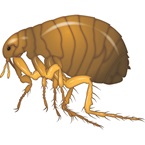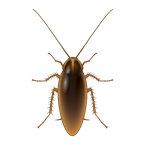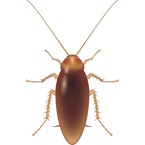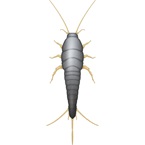Species category: Cockroach
Scientific name: Blatta orientalis
Family: Blatidae
Description
This large cockroach species typically reaches 26-32mm in length during adulthood. It has a shiny deep red – to brownish-black colouring. Males and females look different because of their wing appearance, which is larger on the males.
Originating from North Africa, the Oriental cockroach is now found throughout the world but less so in Europe.
It prefers humid, dark and concealed harbourages, such as cellars, ducting and other underground parts of buildings. Deceptively, the harbourage may be located outside an infested area, being reached by the cockroach through under-floor cavities, ducting or drains.
It is most commonly found around the ground-floor of buildings, although sometimes it can be discovered on higher levels.
It is known for its love of water and in a building, can be located in sewers, drains, basements, cellars, under sinks, baths or washing machines.
Behaviour
Like the German cockroach, the main period of activity is early in the evening but unlike this species it is not a similarly accomplished climber, which means it is more commonly located at ground level.
The female lays her eggs in capsules called ootheca, the life cycle can be lengthy with the nymph stage lasting from 6-12 months.
This species will feed on any type of decaying organic matter, including garbage, carrying the bacteria with them on every surface that they traverse.
Risks
In the course of their foraging activity, the nymphs, larvae and adults can contaminate and infect foodstuffs. They secrete an odorous discharge from their body which also taints and contaminates food.
Like other cockroach species, the Oriental Cockroaches transmit bacteria as they walk, transferring pathogens such as salmonella and e.coli to every area they scurry across.
Cockroaches also shed cuticles, faeces and other cockroach debris which are known asthma and allergy triggers.




